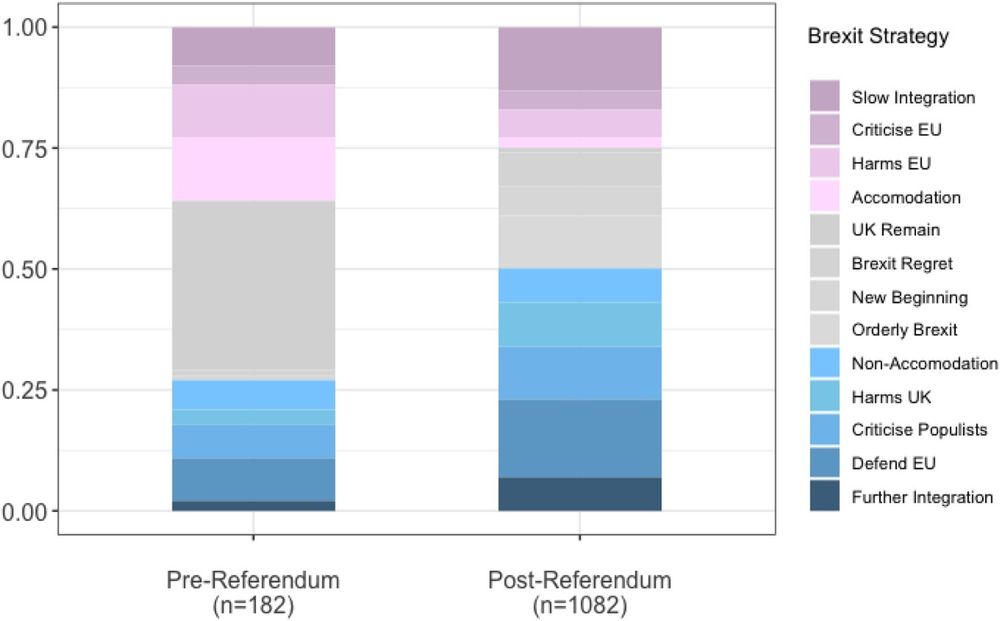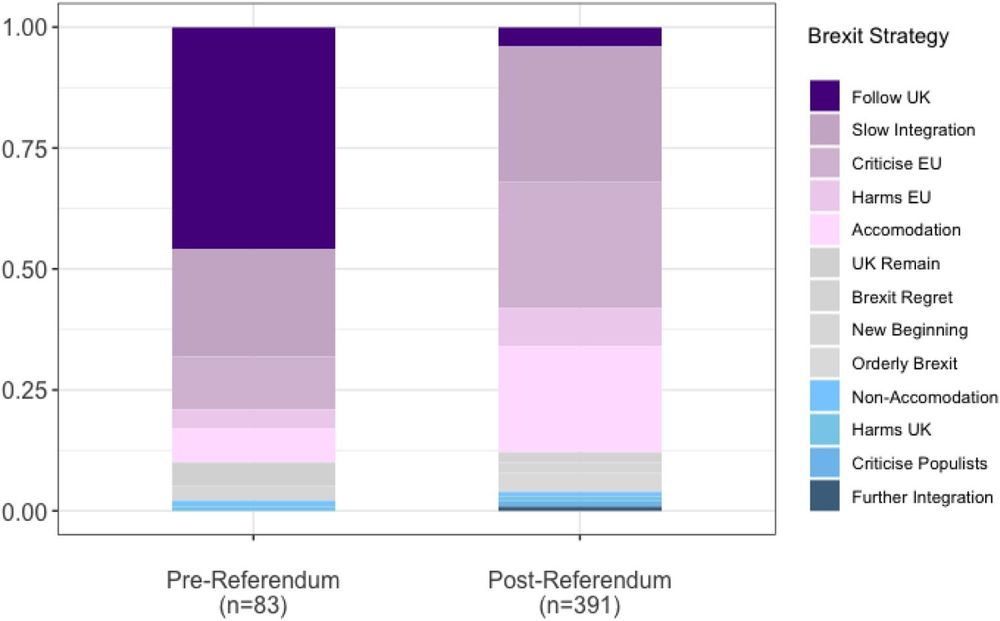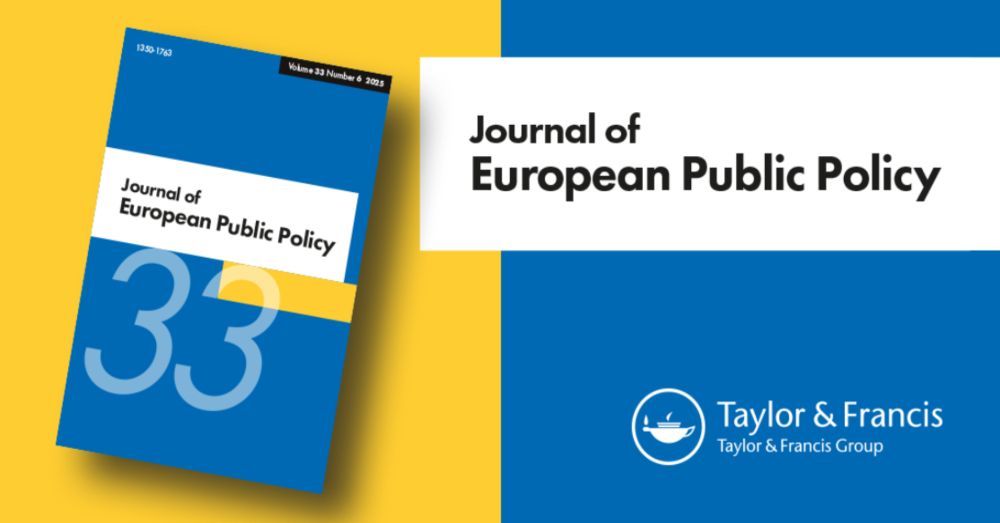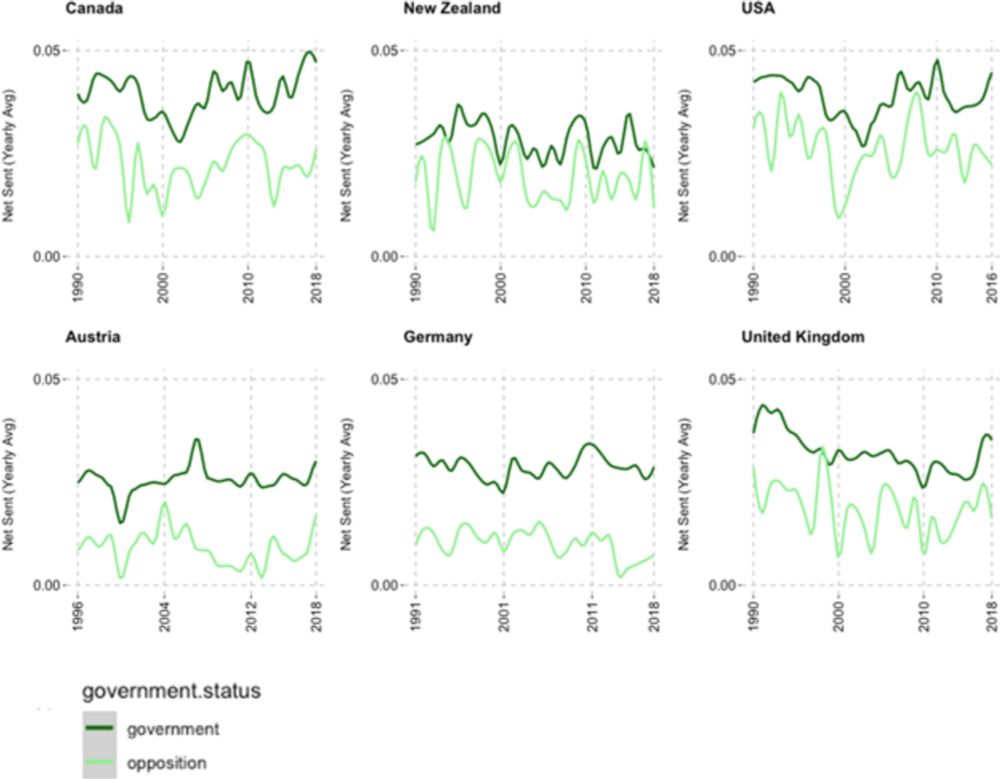Finally, a particular thanks to my PhD supervisors @sarahagemann.bsky.social and @sarahobolt.bsky.social who saw this through from the very beginning! I’m also grateful to @chrauh.bsky.social and @stefwalter.bsky.social (and many others!) for great comments and help along the way.
08.10.2025 11:02 — 👍 6 🔁 0 💬 0 📌 0

The Responsive Union
Cambridge Core - European Government, Politics and Policy - The Responsive Union
It also builds on work on responsiveness in the EU from @cjschneider.bsky.social and @chriswratil.bsky.social . Check out this book! www.cambridge.org/core/books/r...
08.10.2025 11:02 — 👍 3 🔁 0 💬 1 📌 0
This builds on great work on blame shifting in the EU by the team at LMU: Lisa Kriegmair, Berthold Rittberger, Bernahrd Zangl, @heinkelmann-wild.bsky.social. Check out this book! global.oup.com/academic/pro...
08.10.2025 11:02 — 👍 1 🔁 0 💬 1 📌 0
On the other, the fact that the EU is only credited for issues citizens care little about, while governments claim credit for the issues that are electorally salient is more problematic… 👎
08.10.2025 11:02 — 👍 1 🔁 0 💬 1 📌 0
What does this mean for #accountability in Europe? On the one hand, the fact that the EU is blamed less than often assumed (and does receive credit!) is rather encouraging. 👍
08.10.2025 11:02 — 👍 1 🔁 0 💬 1 📌 0

And here are predicted probabilities at different levels of issue salience: as salience increases, this increases the probability of leaders claiming credit, and decreases the prob of sharing credit with the EU.
08.10.2025 11:02 — 👍 1 🔁 0 💬 1 📌 0

However, there are huge differences across issues: for the Environment (low salience during my investigation period) most leaders are happy to credit the EU, but for the Economic Situation (high salience), most leaders claim credit
08.10.2025 11:02 — 👍 1 🔁 0 💬 1 📌 0

Importantly, Europe DOES receive credit from national leaders. Many leaders are to the right of the dotted line in this figure, meaning they actually share credit with the EU more than they claim it for themselves.
08.10.2025 11:02 — 👍 1 🔁 0 💬 1 📌 0

What do we observe descriptively? i) Blame shifting by governments is rare; ii) the response to increased Euroscepticism + EU politicization in crisis years seems to be an increase in credit claiming rather than blame.
08.10.2025 11:02 — 👍 2 🔁 0 💬 1 📌 0
My original data captures press conference of heads of gov after #EUCO summits (2005-2018). Each paragraph is handcoded for credit claiming, credit sharing, or blame. As each leader is in essence presenting the same stimulus (EUCO conclusions), this provides a neat ‘within-case’ comparison.
08.10.2025 11:02 — 👍 2 🔁 0 💬 1 📌 0
How do governments solve this dilemma? Through CREDIT CLAIMING. I also argue that issue salience is key: for issues that matter to electorates, govs wil claim credit; for issues of low salience, govs are happy to share credit with the EU.
08.10.2025 11:02 — 👍 2 🔁 0 💬 1 📌 0
Governments facing high levels of Euroscepticism therefore face a RHETORICAL DILEMMA: on the one hand, the need to signal responsiveness to a more skeptical electorate; on the other, a reluctance to explicitly blame the EU.
08.10.2025 11:02 — 👍 2 🔁 0 💬 1 📌 0
I argue that far from being costless, scapegoating the EU can be a risky strategy for governments: it risks antagonising voters that are supportive of the EU, damages reputation with other member states, and can be a sign of negotiation failure on the international stage.
08.10.2025 11:02 — 👍 2 🔁 0 💬 1 📌 0

Credit Claiming in the European Union | The Journal of Politics: Vol 87, No 3
Incumbents in multilevel systems are assumed to exploit uncertainty of responsibility by claiming credit and shifting blame, yet little is known about when and how they engage in these rhetorical stra...
🚨 New(ish) Publication Alert! Delighted to see my article Credit Claiming in the EU @thejop.bsky.social I explore a classic question for accountability in Europe: when and why do govs claim credit for the work of the EU and shift blame onto Brussels to avoid responsibility? doi.org/10.1086/732970
08.10.2025 11:02 — 👍 27 🔁 13 💬 1 📌 0
Excited to be on a great panel on Politicization and Party Strategies in the EU @ecpr.bsky.social. Featuring @heinkelmann-wild.bsky.social , @kovarek.bsky.social , @duarteamaro.bsky.social, @saorhan.bsky.social among others. Come on down to the Polytechnic School (B 5.39)at 13:30 tomorrow (29 Aug)!
28.08.2025 17:22 — 👍 4 🔁 4 💬 0 📌 1

(4/5) Mainstream pro-European parties also got a bolder in their #Brexit statements after the vote - increasing the pro-Europeanism in their rhetoric and using it as an opportunity to attack #populists at home and abroad.
07.07.2025 17:57 — 👍 0 🔁 0 💬 1 📌 0

(3/5)The descriptive figures show it all: whilst talk of following in the UK’s footsteps was popular pre-referendum vote (June 2016), this almost disappears completely post-vote. I also find that EUsceptics aim to avoid #Brexit in their parliamentary comms.
07.07.2025 17:57 — 👍 0 🔁 0 💬 1 📌 0
(2/5) I find that it is very much the latter, as the UK’s negative experience post-referendum revealed new information about the desirability of #EU membership. Data comes from 2,223 Brexit statements between 2013 and 2018 in five legislatures (AT, DE, DK, NL, SE )
07.07.2025 17:57 — 👍 0 🔁 0 💬 1 📌 0
(1/5) My article Disintegration and Party Competition is out in the latest issue of @jeppjournal.bsky.social ! I ask how parties in other member states reacted to #Brexit. Do #Eurosceptic challengers frame it as an example to follow? Or do they instead row back on ‘hard’ demands to #leave the EU?
07.07.2025 17:57 — 👍 10 🔁 4 💬 2 📌 0
(3/3) I also look forward to acting as a discussant on the panel 'International Law and compliance' (Friday 27 June, 11:20 - 13:00, Room 1A.11) chaired by Niheer Dasandi. Vamos!
25.06.2025 10:25 — 👍 2 🔁 0 💬 0 📌 0
(2/3)On Friday 27 June (13:10 - 14:50, Room 1A.11) I present joint work with @ta-huikuri.bsky.social on Women in International negotiations as part of the panel 'Gender Representation: rhetoric and parliamentary speeches' chaired by @clint0475.bsky.social
25.06.2025 10:25 — 👍 3 🔁 2 💬 1 📌 0
(1/3) I am excited to be on 2 great panels at #EPSA in Madrid! On Thursday 26 June (09:30 - 11:10, Room 0A.06) I present joint work with @stefwalter.bsky.social on Parties and IOs on the panel ‘Text analysis in the Study of IR’ chaired by @andduer.bsky.social
25.06.2025 10:25 — 👍 5 🔁 1 💬 1 📌 1

Sage Journals: Discover world-class research
Subscription and open access journals from Sage, the world's leading independent academic publisher.
DISINTEGRATION publication #7 @giorgiomalet.bsky.social shows that French rejection of the EU constitution in the 2005 referendum increased public opposition to the Constitution abroad, an example of cross-national social influence. journals.sagepub.com/doi/10.1177/...
08.05.2025 12:47 — 👍 2 🔁 1 💬 1 📌 0
Important paper from @stefwalter.bsky.social and the @disintegrationerc.bsky.social project: the backlash against globalisation is less about large shifts in public opinion, more about political entrepreneurs mobilising the issue.
05.05.2025 08:12 — 👍 7 🔁 2 💬 0 📌 0
ETH Zurich | Assistant prof | EU politics
Researcher at Europa-Universität Flensburg and ICES
https://saorhan.github.io/
dphil student in politics, university of oxford. interested in party competition, european integration, and the legacies of transitions to democracy.
postdoc at EUI, PhD from CEU ■ representation, political behavior, distributive politics, local ties ■ usually on a bike, a night train, or al banco
PhD researcher @ EUI | Research Assistant @ Johns Hopkins SAIS
IR, party politics and far right, security, IOs.
(he/him)
https://www.raffaelemastrorocco.com/
Political Science Postdoc // University of Salzburg // INCONEX // Party Leaders // part of the TaDa Reading Group - tada.cool // www.clintclaessen.com
Professor of International Relations at the University of Salzburg || Political science || Trade policy || International political economy || EU || Public opinion
Associate editor and columnist @financialtimes.com. Post too often about culture, public policy, management, politics, nerd stuff, Arsenal, wosoc. Try my UK politics newsletter for free here: www.ft.com/tryinsidepolitics
Advancing the power of facts, globally 🌎
A mix of stuff: mainly #opendata, #dataprotection, #geospatial, #datapolicy, #ddj, #genAI, #govtech. Links and half-formed thoughts posted for my own amusement. Still on Twitter at @owenboswarva. Sites: www.owenboswarva.com and www.datadaptive.com. He/him.
Storyteller
Curator TEDxLondon, TED Countdown
Host of Climate Curious Podcast
Breaking News, Latest News and Current News from FOXNews.com. Breaking news and video. Latest Current News: U.S., World, Entertainment, Health, Business, Technology […]
[bridged from https://foxnews.com/ on the web: https://fed.brid.gy/web/foxnews.com ]
Things to do in London - and everything else about the best city in the world. Official account.
Democracy Skies in Blueness
Stories that reveal and inspire, challenging expectations.
Weekdays 7-8pm on Channel 4.
Got a story? C4Nstories@itn.co.uk
---
Substack: https://channel4news.substack.com
Website: www.channel4.com/news
YouTube: www.youtube.com/@Channel4News










